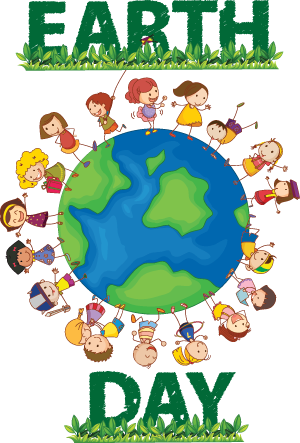 For some Americans, buying organic vegetables, recycling, and biking to work are just part of a modern healthy lifestyle, one that also happens to benefit the planet we live on. But there was a time when these environmentally sustainable habits were not a part of everyday life, and when the protection of the planet was a non-issue for both government and industry.
For some Americans, buying organic vegetables, recycling, and biking to work are just part of a modern healthy lifestyle, one that also happens to benefit the planet we live on. But there was a time when these environmentally sustainable habits were not a part of everyday life, and when the protection of the planet was a non-issue for both government and industry.
April 22, 2015 marks the 45th anniversary of Earth Day: The day the tide began to turn on the lack of awareness and activism around environmental concerns.
Inspired by anti-war "teach-ins" of the 1960's, founder and former Democratic senator Gaylord Nelson conceived of Earth Day as a nationwide demonstration by all who cared about the environment. It was a way to push issues, such as air pollution and wildlife conservation, into the political spotlight.
On the first Earth Day in 1970, 20 million Americans participated in locally organized events to promote sustainability, conservation, and healthy living. Earth Day has since become the largest internationally celebrated secular holiday, with over one billion people around the world participating each year.
Here are five things you can do to make an impact on Earth Day, and on every day after that, too:
Eat more veggies (and less meat): According to the Earth Day Network, the production of meat produces more greenhouse gas emissions than the entire transportation industry. Meat production also requires an incredible amount of fresh water and fossil fuels. Simply reducing your family's meat consumption by one cheeseburger a week can have a significant positive impact, not only on the environment, but also on your health.
Buy local: Did you know that every day, it's likely that you consume foods that have travelled over a 1,000 miles to reach your table? Buying local fruits, meats, and vegetables is a great way to reduce the impacts of these harmful "food miles." Plus, locally grown veggies have more nutritional value and taste better. What could be more earth friendly than that?
Learn something: It's easy to avoid thinking about environmental issues if they don't seem to impact you on a daily basis, or seem overwhelming to understand. Take the time to explore an issue like air pollution or global warming, and find out what you can do about it, and why your contribution matters.
Take a walk: Do you live close enough to the grocery store, work, or school but still drive to those places because it's convenient? Make a commitment to bike to work or walk your kids to school once or twice a week. On a personal level, these minor changes can help you to lose weight, save money, and improve your overall health; on a larger scale, your effort will help to reduce carbon emissions, increase local air quality, and save on community health care costs.
Participate: Earth Day began with people just like you. There are dozens of ways to get involved in Earth Day activities: Clean up a local park or trail, use public transportation, conserve energy and water in your home, support local farmers and food producers, join your community co-op, or participate in a local Earth Day gathering or event.
To find an Earth Day event in North Carolina, or for guidance on organizing your own, go to: www.earthday.org.
